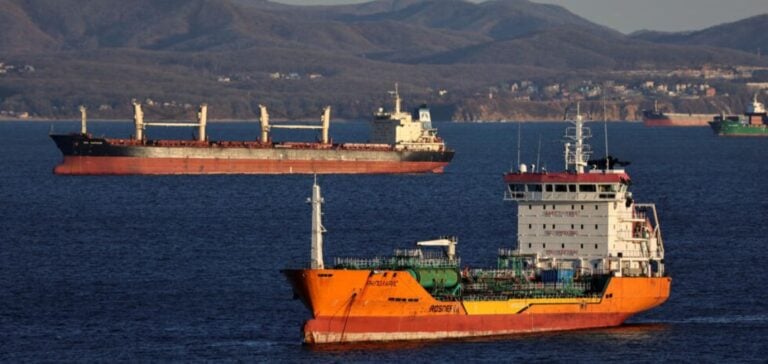Indian crude imports from the Middle East increased significantly in the first half of 2024, due to logistical and transport problems slowing down Russian imports.
However, long-term agreements with Russia could reverse this trend, according to analysts and trade sources.
Evolution of Crude Oil Imports
In 2024, India’s appetite for Middle Eastern crude was strengthened, with imports accounting for 45.9% of the country’s total crude oil imports in the first half of the year. By contrast, Russian crude imports have fallen from 1.93 million barrels per day (b/d) in 2023 to 1.77 million b/d in 2024. This drop is mainly due to a difficult first quarter marked by a rise in world oil prices, including those from the Urals.
Russian oil imports include oil transferred at sea and received via ship-to-ship transfers.
This logistical complexity has contributed to the decline in Russian volumes in favor of Middle Eastern crude, which remains more readily available to Indian refiners.
Impact of Sanctions and Market Opportunities
Political leaders in New Delhi and Moscow have expressed openness to long-term contracts for Russian crude.
However, Indian refiners are reluctant to sign such agreements due to the additional risks associated with sanctions, which complicate transportation and payment terms.
“Indian imports of Russian crude fell by 153,000 b/d in the first half of 2024 year-on-year,” explains Mark Esposito, senior analyst at S&P Global Commodities at Sea.
Despite this, the second quarter of 2024 saw a recovery in Russian imports, reaching 1.96 million b/d, the highest quarterly volume since the second quarter of 2023.
Preliminary CAS data indicate a further increase in July, a sign that Indian refiners’ appetite for Urals crude remains strong.
Long-Term Contracts and Production Reduction Strategies
The signing of long-term agreements with Russia could stabilize prices and ensure steady, reliable supplies of Russian crude oil. Indian refiners such as Reliance Industries Ltd. and Indian Oil Corp. are among the largest buyers of Russian oil. The prospect of long-term contracts strengthens the energy ties between India and Russia, especially since Russia’s invasion of Ukraine in February 2022. Planned OPEC+ production cuts will also influence Middle Eastern crude flows to India in the second half of 2024. The alliance’s main producers, including Iraq, Russia and Kazakhstan, have agreed to gradually reduce their output by 2.284 million b/d by September 2025. Although imports of Middle Eastern crude were dominant in the first half of 2024, long-term agreements with Russia could reshape India’s oil import landscape, depending on price dynamics and OPEC+ production strategies.






















